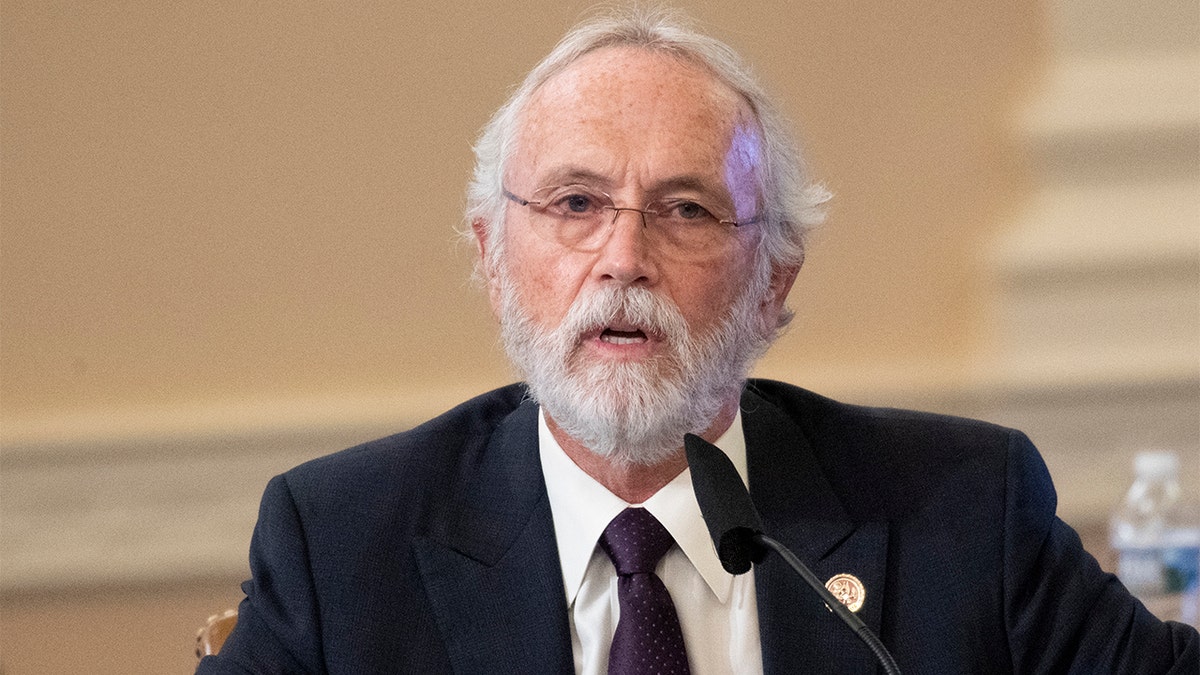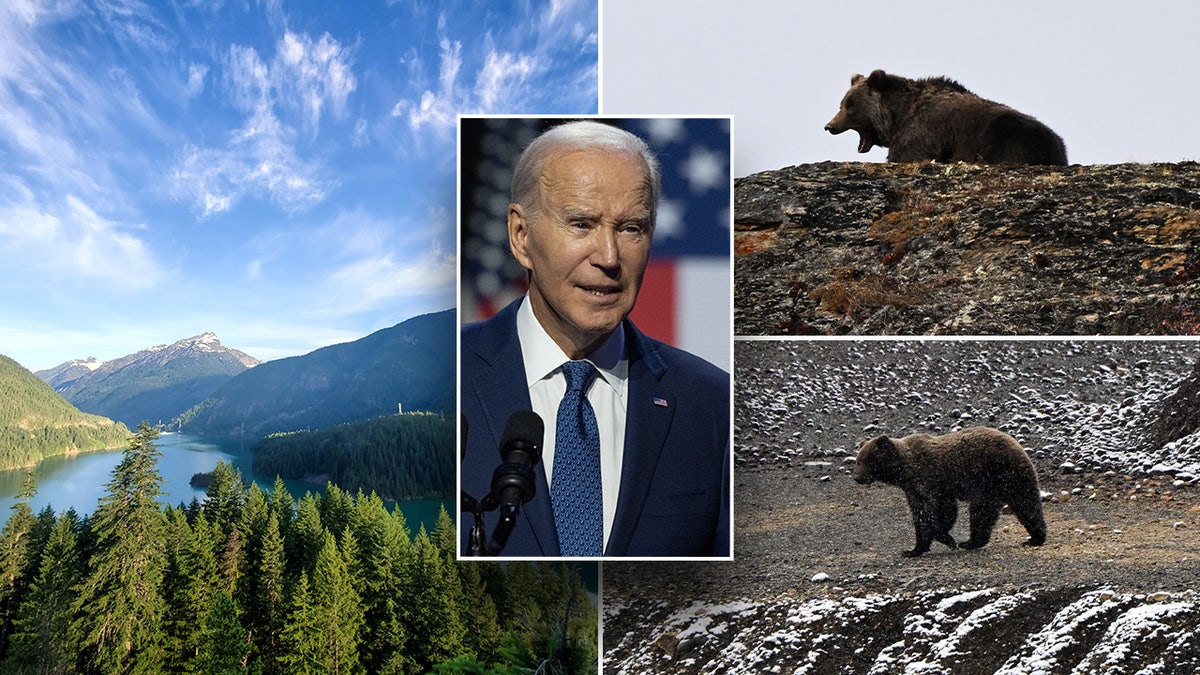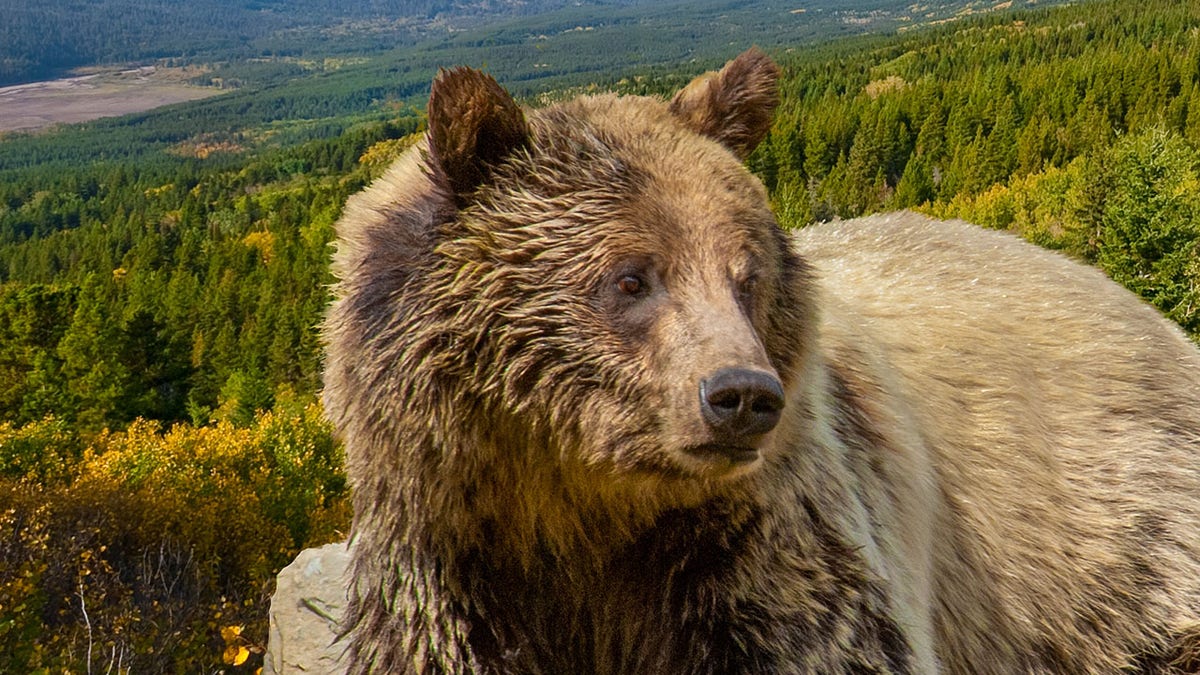Biden heckled by climate protesters in Arizona
President Biden was heckled Thursday during a speech in Arizona by a climate activist who was calling for the president to declare a climate emergency.
Rep. Dan Newhouse, R-Wash., who chairs the Congressional Western Caucus, introduced legislation that would block a federal proposal to release grizzly bears in a forest area in his state.
The legislation would force the Department of the Interior to withdraw a proposed rule and draft environmental impact statement (EIS) that opens the door to release the apex predator in the federally-managed North Cascades National Park in northern Washington. The proposal — unveiled in September by the National Park Service (NPS) and Fish & Wildlife Service (FWS) — was cheered by left-wing eco groups but criticized by local lawmakers and residents.
"Central Washingtonians have consistently voiced their concerns and opposition over the introduction of grizzly bears into the North Cascades Ecosystem, yet unelected bureaucrats from the National Park Service and the Fish and Wildlife Service continue to try to force these predators upon our communities," Newhouse said in a statement.
"These agencies should listen to the people who would be most impacted by these actions and immediately withdraw their proposed rule and draft EIS statement so members of the region can rest safely knowing that an 800 pound apex predator is not going to enter into their backyard," added the Washington lawmaker, who represents communities that would be impacted by the proposal.

Rep. Dan Newhouse, R-Wash., speaks during a House hearing in Washington, D.C., on July 10, 2020. (Caroline Brehman/CQ-Roll Call, Inc via Getty Images)
The Biden administration's proposal late last month included three options, two that would involve actively restoring populations of the threatened apex predator species and one "no action" alternative that would maintain current management practices. As part of the announcement, the public is invited to comment on the proposed actions through mid-November.
Under the plan, NPS and FWS would release up to seven grizzly bears annually into the North Cascades ecosystem over the course of the next five to 10 years. The federal government's overarching goal would be to establish a grizzly bear population of roughly 200 bears in the coming decades.
WHITE HOUSE PROHIBITING OFFICIAL TRAVEL TO FOSSIL FUEL CONFERENCES, INTERNAL MEMO SHOWS
"If this part of our natural heritage is restored, it should be done in a way that ensures communities, property, and the animals can all coexist peacefully," Hugh Morrison, the regional FWS director, said in a statement.
Grizzly bears occupied the North Cascades and served as an "essential part of the ecosystem" for thousands of years. However, in the 20th century, as a result of aggressive hunting practices, the species was driven into near extinction and the last confirmed sighting of a grizzly bear in the North Cascades ecosystem was in 1996, the NPS said.

The Biden administration proposed a plan on Sept. 29 to release up to seven grizzly bears annually into the North Cascades ecosystem in northern Washington over the course of the next five to 10 years. (Getty Images)
According to the Washington State Department of Fish and Wildlife, unintentionally or intentionally killing a grizzly bear in the state can result in massive fines and penalties since the species is listed as federally threatened and state-listed as endangered.
BIDEN SIGNS BILL INTO LAW THAT REVERSES HIS ADMIN'S DEFUNDING OF SCHOOL HUNTING, SHOOTING PROGRAMS
"We have previously provided extensive comments opposing grizzly bear reintroduction into our local communities," the commissioners of Chelan County, Washington, which is located near North Cascades, wrote to the NPS in December. "We continue to oppose grizzly bear reintroduction given the likely negative impacts to public safety, economic development, recreation opportunities and the overall livelihood of our rural communities."
"The federal agencies leading this effort have generally failed to address these concerns and have failed to engage in any meaningful way Chelan County and other neighboring counties in the proposed grizzly bear restoration area," they added in their letter.
Plans to reintroduce grizzly bears to the North Cascades dates back to the Obama administration. Then, after significant state opposition led by Newhouse, the Trump administration concluded that grizzly bears would not be restored in the ecosystem.

A grizzly bear is photographed while foraging in Glacier National Park in Montana. While grizzly bears are classified as a threatened species in Washington, they are not in danger of extinction. (iStock)
Former Interior Secretary David Bernhardt noted in July 2020 that grizzly bears are not in danger of extinction and that his agency could manage populations across their existing range.
However, late last year, following extensive litigation from environmental groups, the Biden administration announced it would again review whether to move forward with restoration, a process that led to the proposal last month.
CLICK HERE FOR THE FOX NEWS APP
"Fortunately, communities in the Rocky Mountains and elsewhere have demonstrated how humans can live successfully alongside grizzly bears, utilizing the many effective nonlethal tools to prevent conflicts between people and bears," a coalition of more than a dozen environmental organizations wrote to Interior Secretary Deb Haaland last year, urging the restoration of grizzly bears in Washington.
"Thanks to the work of state and federal agencies, Tribes, businesses, and nonprofits, many people across the North Cascades are already using bear-resistant trash cans, electric fences, and other tools to coexist with grizzlies and other wildlife."















































